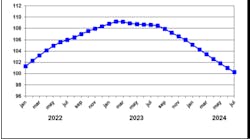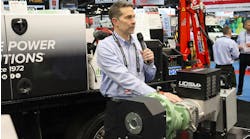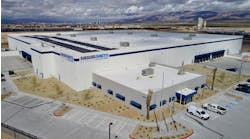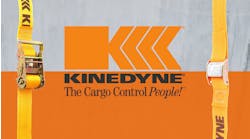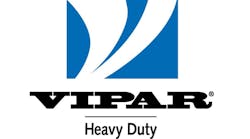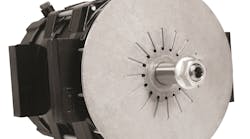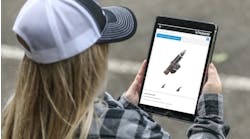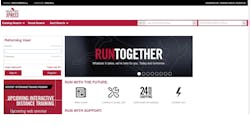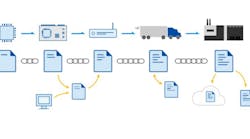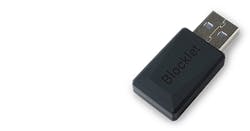Blockchain could help DTNA accelerate parts, maintenance
Daimler Trucks North America (DTNA) is looking to advance its aftermarket remanufacturing operations using blockchain technology through a partnership with Filament, having completed a test project with the enterprise and industrial IoT and blockchain solutions provider.
DTNA said its broader goal is to improve its commercial vehicle maintenance program first by automating and streamlining remanufacturing. The initial project with Filament involved the use of a USB device called Blocklet that facilitates data capture in a blockchain, which bundles and attests to data such as tracking records in a shipment, start to finish.
Blockchain is a little like shrink-wrapping and boxing ready-to-eat meals coming down a production/ assembly line, if they could all be linked together as one. The technology packages and seals many groups or bundles of data like individual links on a growing chain, creating what's meant to be an "immutable" path of information much more resistant to hacking and tampering.
Filament's Blocklet device and software will interface with DTNA's legacy systems to digitize supply chain ledgers to trace, track, and verify shipping and transaction data in the parts remanufacturing process.
"DTNA has many parties that need to track and share data concerning the status, condition, timing, and more associated with our vehicles, major components, and other spare parts," said Lori Heino-Royer, director of business development at the company. The blockchain project's goal is "provide full transparency along our supply chain," she noted, and ultimately to "save us a lot of time and money."
Allison Clift-Jennings, CEO of Filament, said blockchain—a baffling technology still for many in trucking—has many benefits in a setup like DTNA's parts supply chain. It can trace and verify the origin and history of parts, she explained, and drive trust in data through its improved security.
Blockchain is not bullet-proof and yes, blockchain systems both theoretically can be and actually have been hacked, but doing so is an incredible long shot.
In a typical supply chain, for instance, a single data element could be altered and tampered with fairly easily. In a blockchain, you've got sealed and protected data groups that together form a chain and history. So to change even a few ones and zeros in any of that, you'd have to access and break into all of those links and make the same change or alter the entire timeline of data, which is exponentially more difficult a proposition.
"Blockchain technology gives connected machines including passenger vehicles, long-haul trucks, and construction equipment a voice of immutable truth that goes well beyond data gathering," Clift-Jennings contended.
Filament separately this week unveiled its Blocklet TVA (Trusted Vehicle Applications) connected vehicle blockchain platform. It includes a chipset that plugs into a passenger vehicle's OBD-II port or commercial vehicle's J1939 port to capture and record data such as that coming from the engine's electronic control unit.
To add context to whatever data chains Blocklet TVA records, the system also has environmental sensors that can detect temperature, humidity, and more and a motion sensor that can track things like acceleration, G-forces, and incline. Built-in and dedicated GPS adds coordinates and location info. All those things are examples of info that can filter into and become part of the data links in a blockchain.
